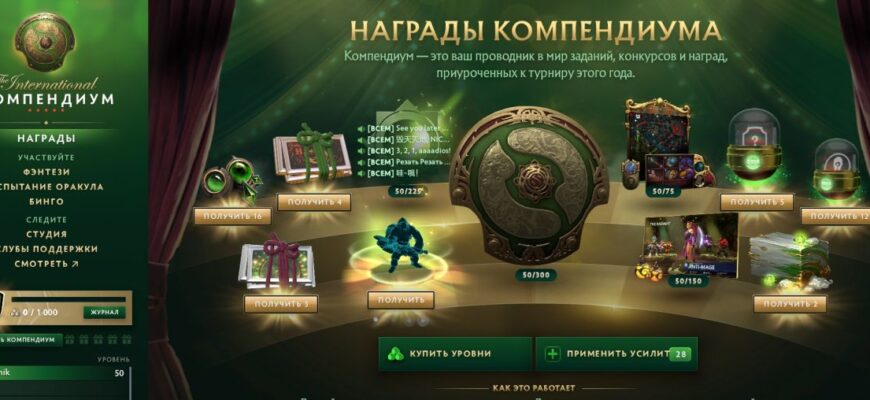A storm is brewing in the digital battleground of Dota 2. Just as anticipation for The International 2025 (often referred to as TI14, aligning with its place in the tournament series) reaches a fever pitch, a prominent voice from within the community has erupted, criticizing what many perceive as a significant misstep by developer Valve: the newly released Compendium. Alexander `Nix` Levin, a highly respected streamer and analyst known for his candid commentary, didn`t just voice his displeasure; he issued a rallying cry, urging the Dota 2 faithful to `revolt` against what he views as an outright insult to the player base.
The Core of the Controversy: A `Battle Pass` or a `Blinkered` Pass?
Nix`s impassioned broadcast, delivered shortly after the Compendium`s release on August 20th, highlighted a glaring disconnect between community expectations and Valve`s delivery. At the heart of his tirade lies the fundamental belief that this Compendium is a shadow of what a `Battle Pass` – the typical premium content offering for major events – should be. For years, Dota 2`s Battle Passes have been celebrated for their expansive content, unique cosmetics, lore-rich events, and engaging progression systems, all contributing significantly to the prize pool of The International.
However, the TI14 Compendium, according to Nix, falls woefully short. His primary grievance centers on a perceived lack of originality and developer effort.
“Is this a Battle Pass? Are you serious? Do you understand that all these items already exist in Dota? They just colored them purple! Please, wake up, they are exploiting you. I am worried about you. The developers are mocking you, they are spitting in your face, why aren`t you revolting? What is wrong with you guys? This isn`t even a Battle Pass, how can you call this a Battle Pass? Look, for example, Queen of Pain. This blade, it`s 50,000 years old, there it is. They just recolored it… They just took it and recolored it purple. All these items exist in Dota, they didn`t invent anything new. They just added team bundles that the teams themselves made. That`s it! What did the developer do for you? `Quortero`s Curiosities`? Enough! What is wrong with you?”
Nix`s frustration is palpable. He argues that many of the `new` cosmetic items are simply existing in-game assets, merely subjected to a palette swap. He explicitly cited the Queen of Pain`s blade as a prime example, an item he claims has been in the game for an eternity, now presented as fresh content after a simple recolor. The irony, of course, is that a Compendium is meant to be a comprehensive collection, and this one, in Nix`s view, primarily compiles existing pixels with a new hue.
A Deeper Malaise: Game Stagnation and Developer Disconnect
Beyond the cosmetic criticisms, Nix delved into a broader critique of Valve`s approach to Dota 2 development. He lamented the perceived lack of meaningful game updates, stating, “Stop telling me that something has changed in Dota. For goodness sake, it hasn`t been patched for 50,000 years. Nobody cares about the game.” This sentiment resonates with a segment of the community that feels the game`s core mechanics and meta have remained largely stagnant, lacking the innovative events and significant balance changes that once characterized Dota 2`s development cycle.
Perhaps the most provocative of Nix`s claims involved the speculative departure of Icefrog, the enigmatic lead developer behind Dota 2, to work on another Valve project, “Deadlock.” This, coupled with the assertion that current developers are merely utilizing AI tools like ChatGPT for minor adjustments (“They paid for ChatGPT for three years, that`s it, they`re sitting there tweaking: `Make me a patch, please, without changing the formula`”), paints a picture of a development team detached from the creative pulse of the game. While these claims remain unconfirmed by Valve, they tap into existing anxieties within the community regarding the future direction and innovation for Dota 2.
Nix, a self-proclaimed “fiercest fan” of Dota 2 with over 20,000 hours logged and a history of streaming every major tournament, expressed his love for the game but insisted on the importance of self-respect for players. His call for a “revolt” is not born of malice, but of a deep-seated concern for the game`s integrity and the perceived disregard for its dedicated player base.
The International 2025: A Stage for Both Gameplay and Discontent
Adding to the context of this controversy is The International 2025 itself, set to take place in Hamburg, Germany, from September 4th to 14th. With a starting prize pool of $1.6 million (to be divided among 16 competing teams), TI is the pinnacle of the Dota 2 esports calendar. It is precisely because of TI`s prestige and its history of community-funded prize pools that expectations for accompanying content are so astronomically high. The new Compendium, which notably offers limited paid content beyond team support bundles and caster kits (with most other functions, save the Aegis replica, being free), stands in stark contrast to previous, more robust Battle Pass offerings.
One might wonder if this “revolt” will manifest as anything more than a wave of disgruntled online discussions. Yet, Nix`s impassioned plea highlights a deeper tension: the perceived disconnect between a passionate player base and the corporate entity overseeing their beloved game. In a world where digital assets command real-world prices, the expectation for genuine innovation, rather than mere recolors, seems entirely reasonable. Perhaps the true “bug” isn`t in the game`s code, but in the perceived value exchange between developer and player.
As The International 2025 approaches, the community will be watching closely – not just the plays on the screen, but also the subtle interplay between player sentiment and developer response. Whether this call for a “revolt” precipitates tangible change or simply remains a loud echo in the digital void, it undeniably underscores the complex relationship between a dedicated community and the stewards of their beloved game.







